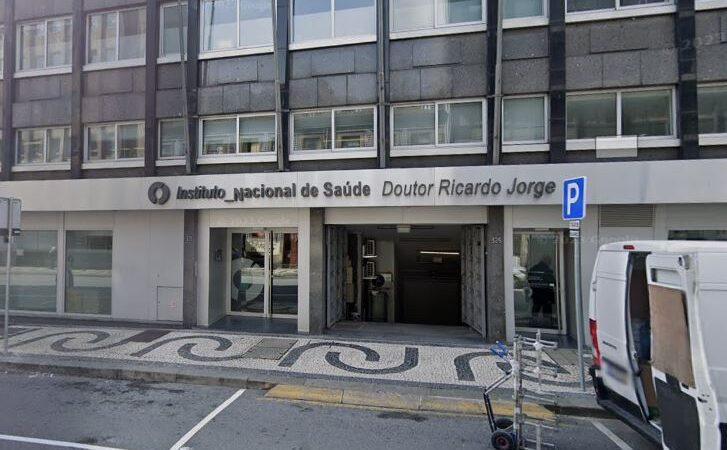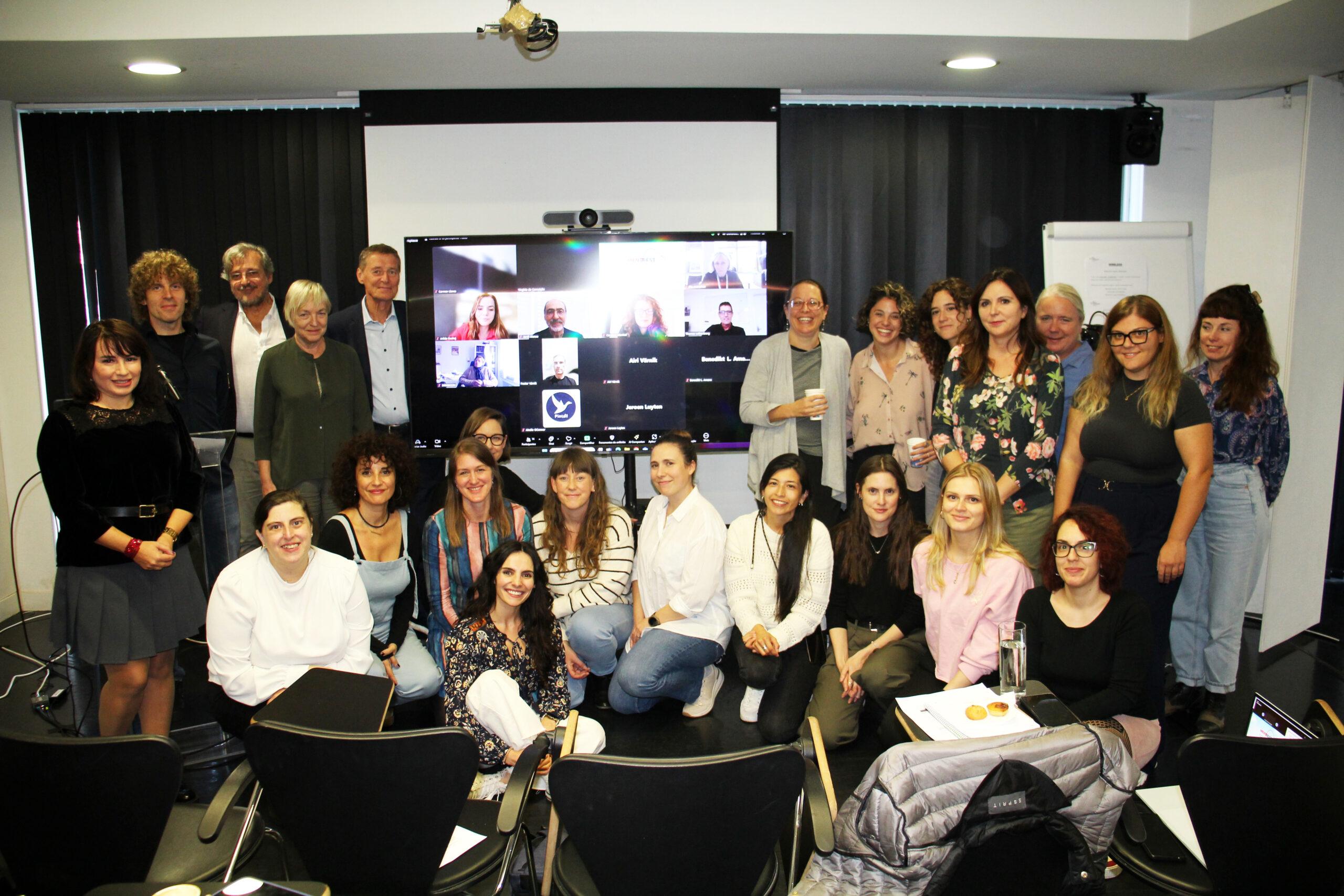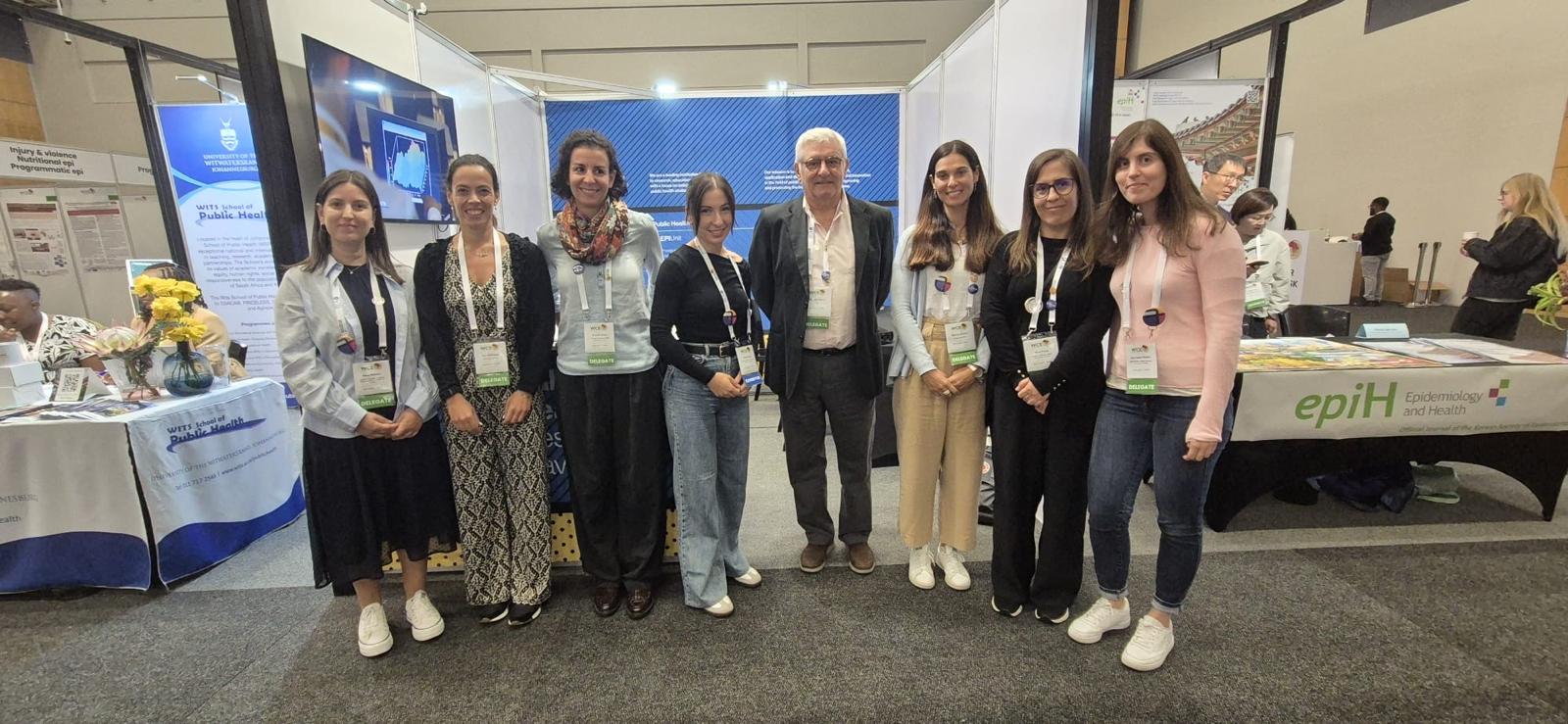Carla Lopes, Elisabete Ramos, Maria Paula Santos, Sofia Vilela and Catarina Carvalho, researchers from the Institute of Public Health of the University of Porto (ISPUP), participated in the “B-Challenged and CONNECTION Joint Event & Co-creation Training” held in Amsterdam, from September 30 to October 2. This event was organized by Stichting VUmc – University Medical Center Amsterdam, the dutch partner of the CONNECTION project, led by ISPUP.
At the meeting, the researchers had the opportunity to discuss key aspects of the project’s progress and engage in intensive training on strategies and methodologies for co-creating interventions to promote physical activity and healthy eating in children and adolescents.
At this same event, and in line with the ERA4HEALTH funding program, which encourages synergies and partnerships between different projects funded by the same call, ISPUP researchers officially established a partnership with the B-Challenged Project, coordinated by the University Medical Center Amsterdam.
The CONNECTION project involves a broad team of researchers from universities and research centers in eight European countries and was one of the projects approved under the “HealthEquity 2023” call of the “ERA4Health Partnership” funded by the European Union’s Horizon Europe Program.
Given the similarities in the objectives and methodologies applied in both the CONNECTION and B-Challenged projects, it was proposed to prepare a joint protocol to conduct participatory sessions aimed at promoting physical activity and/or healthy eating behaviors among children and adolescents in seven different contexts across southern, northern, and eastern European cities.
Like CONNECTION, B-Challenged will also implement co-creation methodologies for interventions to address challenges related to eating behaviors and physical activity in children growing up in disadvantaged areas.
About the CONNECTION Project
The CONNECTION Project started on May 1, 2024, with the aim of designing, implementing, and evaluating a set of community interventions – in social, physical, and environmental contexts – that promote healthier eating habits and encourage physical activity among children and adolescents in socioeconomically disadvantaged circumstances, with the ultimate goal of increasing health equity.
Coordinated by ISPUP’s lead researcher, Carla Lopes, CONNECTION has a wide team of researchers from universities and research centers in eight European countries: Portugal, Belgium, Italy, the Netherlands, Denmark, Lithuania, Latvia, and Spain. This team gathered on May 22 and 23 of this year at ISPUP for the official kick-off event, where the main development stages and actions to be carried out over the next three years were discussed. The project is expected to be completed by April 2027.
CONNECTION will involve children and young people in the creation of “environments” that encourage healthier eating habits and physical activity, with the ultimate aim of reducing health inequities.
Building on the experience and involvement of these partners in other projects that included successful community interventions, CONNECTION will also co-create interventions to mitigate food inequalities among children and adolescents living in more vulnerable conditions, replicated in different European contexts, with the goal of identifying new approaches to intervene in food and physical activity environments while simultaneously promoting social human rights.
In the design of interventions, adolescents will be involved in the project through a participatory action research approach, with the aim of developing actions aligned with the needs and interests of the target population and empowering these young people to make better health decisions.
Furthermore, data from birth cohort studies, such as ISPUP’s Generation XXI, will provide important opportunities to assess behavioral trajectories and study their lifelong associations with health levels, as well as to understand how social factors can modify these associations.
Finally, the project also plans to develop policy tools and implementation guidelines to support policymakers and other relevant entities in future planning that promotes greater health equity.
“The ultimate goal of our community-based co-creation models is to break cycles of health inequities by actively engaging the target population,” concludes Carla Lopes, the lead researcher of the project.



